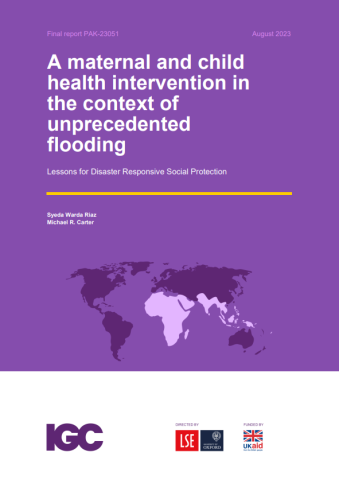-
Riaz et al Final report August 2023
PDF document • 927.46 KB
Improvements in maternal and child health indicators remain a priority area in developing countries, but a lot yet remains to be achieved. Several different factors constraining this progress are at play and end up interacting with each other. On the demand side alone, the economic costs of availing healthcare often coexist with conservative socio-cultural norms making it hard for many policy initiatives to achieve the desired improvement, but the evidence on how these economic and non-economic costs work in conjunction to affect healthcare is limited which is what this paper sets out to do in the context of a conditional cash transfer program in Sindh, Pakistan. Additionally, the exposure of our study participants to the floods of 2022 provides us with a natural experiment to evaluate the effectiveness of a CCT program during and in the aftermath of a large-scale natural disaster where we will put special emphasis on the duration and trimester (of the pregnancy) to this exposure.




